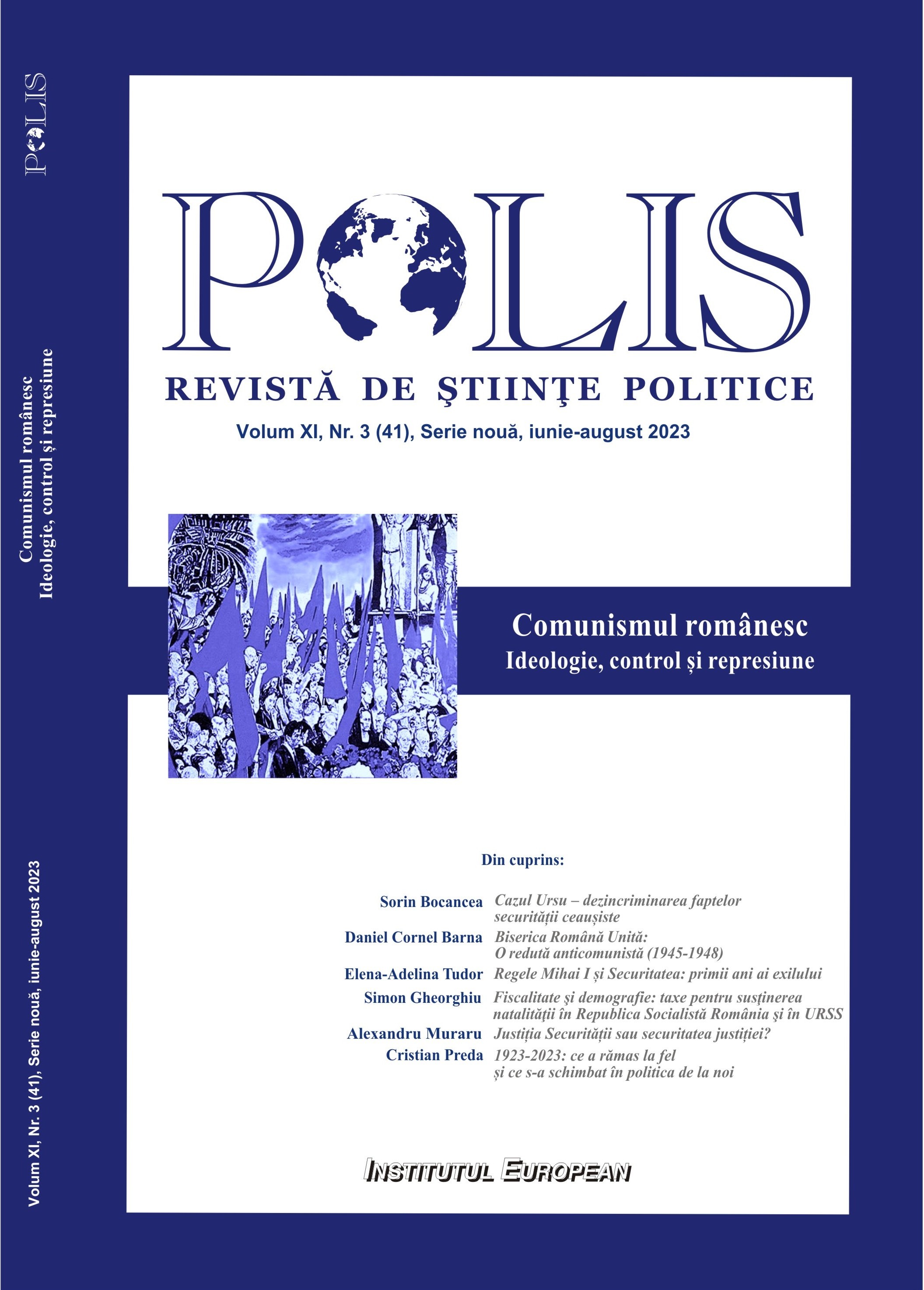Foreign journalists surveilled by the Romanian Securitate after the 1987 Brașov rebellion
Foreign journalists surveilled by the Romanian Securitate after the 1987 Brașov rebellion
Author(s): Oana Ionel DEMETRIADESubject(s): Politics / Political Sciences, History, Philosophy
Published by: Editura Institutul European
Keywords: political police; freedom of the press; censorship; human rights; surveillance;
Summary/Abstract: The one-party system and the political police in socialist countries believed that all foreign citizens coming into these countries, especially those coming from capitalist countries, were if not enemies, at least spy suspects or agents of “contamination” of Romanian subjects with “unhealthy” ideas. For these reasons, during the Cold War, the Romanian Securitate drafted a series of strategies for surveillance and strict control of foreigners during their time in Romania. Especially journalists, who were working without the control of censorship and did not observe the directions of the official propaganda, had to undergo permanent harassment so that they were either influenced, or discouraged to give up on their critical take on the politics of the Bucharest regime. Based on unpublished documents in the archive of the former Romanian Securitate, this study proposes to analyse the legislation on the status of foreigners in Romania in the ’80s and on how to be a journalist, and also the analyse the internal orders of the Ministry of Internal Affairs (Securitate and Militia), based on which the surveillance of foreign journalist was carried out; it will also present two case studies, which reflect various control methods used by the political police. After analysing the above mentioned documents, the aim of the strict control of foreign journalists, as employed in all units of the Ministry of Internal Affairs, as well as party and state institutions (the Ministry of Internal Affairs, Agerpres, the Department for Propaganda, Press and Radio-Television of the Central Committee of the Romanian Communist Party, the Ministry of Tourism, etc.), was – using the spy prevention narrative – to forbid to inform accurately the international public opinion on the situation in Romania, to forbid meeting with and sending messages to any regime opponents and asking any uncomfortable questions, which were asked in democratic countries, despite all the international agreements which Romania had undertaken. At the same time, the employees of the Ministry of Internal Affairs were capable to take some seriously tough measures against foreign journalists, including arrest and investigation, without ensuring the protection of foreign embassies of the countries from where these journalists were coming.
Journal: Polis. Journal of Political Science
- Issue Year: XI/2023
- Issue No: 3(41)
- Page Range: 109-155
- Page Count: 46
- Language: English

